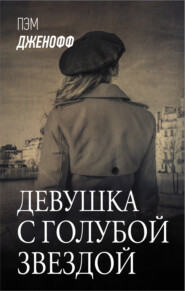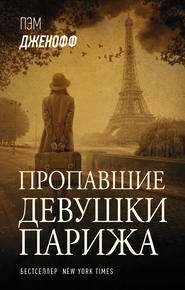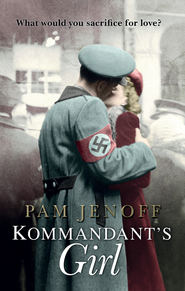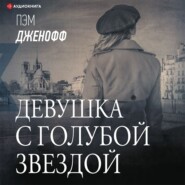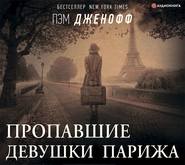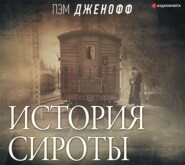По всем вопросам обращайтесь на: info@litportal.ru
(©) 2003-2024.
✖
The Orphan's Tale: The phenomenal international bestseller about courage and loyalty against the odds
Автор
Год написания книги
2018
Настройки чтения
Размер шрифта
Высота строк
Поля
She blinks. “A circus.” Though to us it seems quite normal—indeed for more than half of my life it was all I had known—to her it must sound like something from a fantasy tale. A freak show. I stiffen, instantly reverting to the defensive girl facing down stares on the schoolyard. Throw her back out into the snow if we aren’t good enough.
“How old are you, child?” Herr Neuhoff asks gently.
“I’ll be seventeen next month. I fled my father’s house,” she offers, her German smoother now. “I’m Noa Weil and this is my brother.” Her words come too quickly, answering questions that no one has asked.
“What’s his name?” I ask.
A moment’s hesitation. “Theo. We’re from the Dutch coast,” she says with another pause. “Things were very bad. My father drank and beat us. Mother died in childbirth. So I took my brother and we left.” What is she doing here, hundreds of miles from home? No one would flee Holland for Germany now. Her story does not make sense. I wait for Herr Neuhoff to ask if she has papers.
The girl studies the child’s face with darting eyes. “Is he all right?”
“Yes, he ate well before falling asleep,” Herr Neuhoff reassures.
The girl’s brow wrinkles. “Ate?”
“Drank, I should say,” Herr Neuhoff corrects. “Some formula our cook made from sugar and honey.” Surely the girl would know that if she had been caring for the child.
I step back toward Peter, who reclines in a chair by the door. “She’s lying,” I say in a low voice. The fool girl had probably gotten pregnant. One does not speak of such things, though.
Peter shrugs with detachment. “She must have her reasons for running. We all do.”
“You are welcome to stay,” Herr Neuhoff says. I stare at him dumbfounded: What can he be thinking? He continues, “You’ll have to work, of course, when you’re well enough.”
“Of course.” The girl sits up, spine stiffening, at the suggestion that she might expect charity. “I can clean and cook.” I scoff at her naïveté, imagining her in the cookhouse making pancakes and peeling potatoes by the hundreds.
Herr Neuhoff waves his hand. “Cooks and cleaners we have. No, with your looks that would be a waste. I want you to perform.” Peter shoots me a puzzled look. New performers are recruited from across Europe and beyond; the spots are competitive and hard fought, possible only with a lifetime of training. One does not simply find talent on the street—or in the forest. Herr Neuhoff knows that. He turns to me. “You need a new aerialist, yes?” Over his shoulder, the girl’s eyes widen.
I hesitate. Once the act might have had a dozen or more aerialists, throwing parallel passes and somersaulting past one another in midair. But we have only three now and since my return I’d been largely reduced to the corde lisse and Spanish web. “Of course, but she has never performed. I can’t simply teach her the flying trapeze. Perhaps she could ride a horse or sell programs.” There are dozens of easier jobs she can do. What is making Herr Neuhoff think that she can perform? Usually I can scout talent a mile away. Here I see nothing. He is trying to make a duck into a swan and such a plan would only be met with failure.
“We don’t have time to find another aerialist before we go on the road,” Herr Neuhoff replies. “She has the right look. We have almost six weeks until we leave for tour.” He does not meet my eyes as he says this. Six weeks is a blink of an eye compared with the lifetime of training the rest of us have endured. He is asking me to perform the impossible and he knows it.
“She’s too thick to be an aerialist,” I say, appraising her body critically. Even beneath the duvet, it is plump around the hips and thighs. She is weak, soft in the middle with an innocence that suggests she has never known hard work. She would not have survived the night in the snow if Peter had not found her. And she will not last the week here.
Hearing a shuffling sound, I turn. Herr Neuhoff’s son, Emmet, watches from the doorway, his doughy mouth curled as he takes in our disagreement. He had always been an odd child, playing mean-spirited pranks and getting in trouble. “Wouldn’t want to be upstaged, would you?” he sneers at me.
I look away, ignoring him. The girl is prettier than me, I have to admit, cataloging her looks relative to my own in that way all women do. Good looks will not carry her here, though. In the circus what matters is the talent and experience—of which she has none.
“She can’t stay,” Peter says from his chair, the forcefulness of his voice causing me to jump. Herr Neuhoff is a kind man, but it is his circus and even the star performers such as Peter do not dare to disagree with him openly. “I mean, when she’s well enough she’ll have to go,” he clarifies.
“Where?” Herr Neuhoff demands.
“I don’t know,” Peter admits. “But how can she stay? A girl with a baby, people will ask questions.” He is thinking of me, the additional scrutiny and danger their arrival might bring. Though my identity and past are quietly known among the circus folk, we’ve been able to maintain the pretense with outsiders—at least until now. “We can’t risk the attention.”
“It won’t be a problem if she is part of our act,” Herr Neuhoff counters. “Performers join circuses all of the time.”
They used to, I correct in my head. New performers had joined the circus many times over the years—once we had Serbian animal trainers, a juggler from China. Everything had grown leaner in recent years, though. These days there simply isn’t the money to bring on more acts.
“A cousin from one of the other circuses,” Herr Neuhoff suggests, his plan unfurling. Our own performers would know differently, but the story might satisfy the seasonal workers. “If she’s all ready to perform, then no one will notice,” he adds. It is true that the audience would not pay any attention; they come faithfully each year, but they do not see the people behind the performances.
“That’s very kind of you to offer me a place,” the girl interjects. She struggles to rise from the bed without letting go of the baby, but the very effort seems to wind her and she leans back once more. “But we wouldn’t want to be a burden. As soon as we’ve rested and the weather breaks, we’ll be on our way.” I can see the panic in her eyes. They have nowhere to go.
Vindicated, I turn to Herr Neuhoff. “You see, she can’t do it.”
“I didn’t say that.” The girl straightens again, lifting her chin. “I’m a hard worker and I’m sure that with enough training I can.” Suddenly she seems eager to prove herself where a minute earlier she had not even wanted to try, a kind of defiance I recognize from myself. I wonder if she even knows what she is getting herself into.
“But we can’t possibly have her ready,” I repeat, searching for another argument to persuade him that this will not work.
“You can do this, Astrid.” There is a new forcefulness to Herr Neuhoff’s words. He stops a step short of ordering, instead willing me to agree. “You found shelter here. You need to do this.” His eyes burn into me. So this is how my debt is to be repaid. The whole circus had risked themselves to hide me, now I am to do the same for this stranger. His face softens. “Two innocents. If we do not help them, they will surely die. I won’t have that on my hands.” He could no sooner turn her and the baby away than he could have me.
My eyes meet Peter’s and he opens his mouth to protest once more that we would be risking everything. But then he closes it, knowing as I do that arguing further will do no good.
“Fine,” I say at last. There are limits to what Herr Neuhoff can ask of me, though. “Six weeks,” I say. “I will try to have her ready by the time we go on the road. And if not, then she must leave.” It is the most I have ever stood up to him and for a second it is as if we are equals once more. But those are bygone days. I meet his stare, willing myself not to blink.
“Agreed,” he relents, surprising me.
“We start tomorrow at dawn,” I pronounce. Six weeks or six years it does not matter—she will still not be able to do it. The girl watches me closely and I wait for her to protest. She remains silent, though, a hint of gratitude in her wide, fearful eyes.
“But she was nearly frozen,” Herr Neuhoff protests. “She’s exhausted. She needs time to recover.”
“Tomorrow,” I insist. She will fail and we will be done with her.
5 (#uce6a8b50-3b0b-5ba3-ad0b-6cbda78e7037)
Noa (#uce6a8b50-3b0b-5ba3-ad0b-6cbda78e7037)
She comes for me before dawn.
I am already awake, wearing a dressing gown that is not my own. Moments earlier, I bolted upright, shaken. I’d dreamed that I had gone back to the railcar at the station a second time, not just to save more babies but because I somehow knew that my own child was among them. But when I pulled open the door to the train car it was empty. I reached into the pitch-blackness and shrieked as my arms closed around nothing.
I’d awoken from the dream, hoping I had not screamed aloud and startled others in the strange house. I fought to close my eyes again. I had to go back and save my child. But the image was gone.
As my trembling ebbed, I reached for the baby, who slept peacefully in the basket they had made into a bassinet by my bedside. I pulled him to me, his warmth soothing. I adjusted my eyes to the still room, partly lit by the moonlight that filtered in through curtains held back by braided ropes. A low fire burned in the corner. The fine furnishings were grander than any I’d ever seen. I recalled the odd faces assembled when I’d awoken the previous day, the round circus owner and the woman who looked at me with such distaste and the long-faced man who had sat in the chair watching, like the cast of characters from a story my mother read to me as a child. The circus, they said—it is hard to believe that such a world still exists even during the war. I might have been less surprised to find myself on the moon. I had been to the circus only once when I was three and I cried at the glaring lights and loud noises until my father had taken me out of the tent. And now here I am. It is strange, but no stranger than finding a boxcar full of infants, or any of the things that have happened to me since leaving home.
I gaze down at the baby, freshly bathed and nestled in my arms. Theo, I’d called him without thinking when they asked. I don’t know where the name had come from. He sleeps in the crook of my elbow and I hold still so as not to disturb him. His face is peaceful, cheeks now rosy. Where had he slept before being put in the train? I imagine a warm crib, hands that patted his back to soothe him. I pray that my own child is sleeping somewhere just as safe.
The previous evening they had spoken about me as though I was not there. “She’s got a circus look about her, don’t you think?” the circus owner had said when my eyes were closed and they thought I wasn’t listening. They were sizing me up like a horse they were about to buy. I wanted to stand and say thank-you-but-no-thank-you, to pick up the baby and walk into the night. But the fierce winds still howled and through the window the hills were an unbroken sea of white. If I started out with Theo again, we would not make it to another shelter. So I let them talk about me. This isn’t our place, though. We will stay long enough to save some money and then leave. Where we will go exactly, I don’t know.
“You’ll be paid ten marks a week,” the circus owner had said. The price seemed shrewd, but not so low that he was taking advantage. Should I have asked for more? Perhaps it was a generous sum for one who had never performed. I know so little about money, and I am hardly in a position to bargain.
After the circus people had finished talking about me, they had left the room and I’d fallen asleep. I’d awoken once and found my way to the water closet in the darkness. A few times something rumbled in the distance, seeming to echo off the hills. Air raids perhaps, like the ones I’d heard so many times at the rail station. But they were not close enough to cause alarm.
No one had come to the room again—until now. Hearing footsteps in the hall, I slide from the bed carefully so as not to wake Theo, wanting to open the door before anyone knocks. The woman they had called Astrid, the one who had watched me so disdainfully the previous night, stands before me now in the semidarkness, the moonlight behind giving her a strange glow. Her jet-black hair is bobbed short and curled at the ends, framing her face. She wears no jewelry except for a pair of gold earrings with a small crimson gem in each. She is beautiful in an exotic way with too-large features that fit together perfectly. She does not smile.
“You’ve slept long enough,” she declares without greeting or introduction. “Time to get up and start working.” She throws a leotard in my direction, faded and mended at the toe. “You’ll need to wear this.” I have no idea where my own clothes, soaked and tattered, have gone. I wait for her to leave so I can change, but she simply half turns away. “We haven’t a day to lose. I will train you—or attempt to, anyway. I don’t think you can manage it, but if you do, you may travel with us.”
“Train to do what, exactly?” I ask, wishing I had thought to ask the previous evening before saying I could do it.
“Learn the flying trapeze,” she answers.







